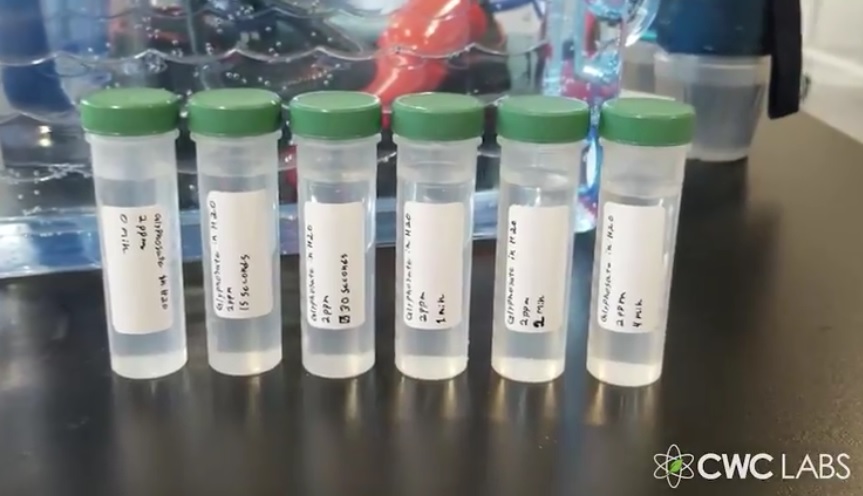Seaweed biofuel for your car or truck may one day be a reality with the help of new technology
02/15/2019 / By Jhoanna Robinson

The United States Department of Energy’s Pacific Northwest National Laboratory (PNNL) is handling two seafood cultivation projects which are geared towards the promotion of seaweed as an alternative form of biofuel. This, for the department’s Advanced Research Projects Agency-Energy (ARPA-E).
These new projects, which are under ARPA-E’s Macroalgae Research Inspiring Novel Energy Resources program (MARINER), are among 18 new initiatives that will be getting $22 million in funding from the DOE. The program seeks to create tools that allow mass production of marine biomass that can be processed into biofuel and bio-based chemicals.
The DOE is confident that the U.S. has the capability of producing enough macroalgae to meet around 10 percent of the country’s yearly energy needs for transportation. But first, new technologies and revolutionary engineering methods should be put in place to significantly increase production before vehicles can operate on seaweed.
The first project is an exercise into predicting the best locations and times to maximize seaweed cultivation in an open-ocean farm by analyzing seaweed growth potential, nutrient availability, and how natural phenomena like currents, tides, waves, storm surges, and the wind could influence the productivity of artificial seaweed farms.
PNNL ocean scientist Zhaoqing Yang is heading the program along with colleagues at PNNL, Georgia Institute of Technology, Oregon State Open University, and Los Alamos National Laboratory.
Another PNNL-led team is set to create an autonomous cultivation system that can be contained within a five-kilometer carbon-fiber rope. It will be kept afloat by free-floating sensors that have sensors tracking the farm’s speed of movement, underwater light exposure, position, and more. The information that will be gathered from the sensors will automatically calculate growth of two species of kelp that reproduce along the line.
The line’s carbon fiber will be made of composite waste materials from the aviation industry. This project will be headed by PNNL engineer Michael Huesemann along with colleagues at PNNL; Port Angeles, Washington-based Composite Recycling Technology Center; Port Townsend, Washington-based Reliance Laboratories; Washington-based Marine Agronomics; and Colorado State University.
Trump says he is open to tweaks to biofuel policy reform
President Donald Trump said he is open to reforming the country’s biofuels policy if it can be executed in a way that maintains job generation statistics for both agriculture and refining industries, according to senators on December 7, 2017 after a meeting with Trump regarding the matter.
Nine lawmakers had asked for the meeting to say that the Renewable Fuel Standard (RFS), a law that mandates refiners to blend increasing amounts of biofuels like corn-based ethanol into the fuel supply every year, was likely to put refineries in their districts out of business.
“The group as a whole agreed with the president to reconvene next week and to expand the group and work together to find a [solution] that is a win for blue-collar workers, a win for jobs, but also a win for farmers at the same time,” Senator Raphael Edward “Ted” Cruz (R- Texas) said after the meeting. The RFS was enacted into law over 10 years ago by then President George Walker Bush as a way to increase agriculture production, reduce energy imports, and slash emissions. The law has since made a market for ethanol that is equivalent to 15 million gallons a year. (Related: Biofuels emit 400 percent more CO2 than regular fuels.)
Refiners are in denouncement of RFS because they say it gives them blending and regulatory expenses amounting to hundreds of millions of dollars a year. Refiners that are not capable of blending biofuels must purchase credits, called RINs, from the refineries that have the facilities to be able to do so. These credits must be given to the Environmental Protection Agency once a year.
In the past, the refining industry has called for tweaks to the policy such as allowing ethanol exports to be counted against annual volume targets for biofuels, reduce the annual volume targets for biofuels, or shift the blending burden to supply terminals.
For more news stories on alternative sources of energy, visit Power.news.
Sources include:
Tagged Under: agriculture, biofuels, corn-based ethanol, discoveries, energy, future tech, refining industry, regular fuels, Renewable Fuel Standard, seaweed, seaweed biofuel



















